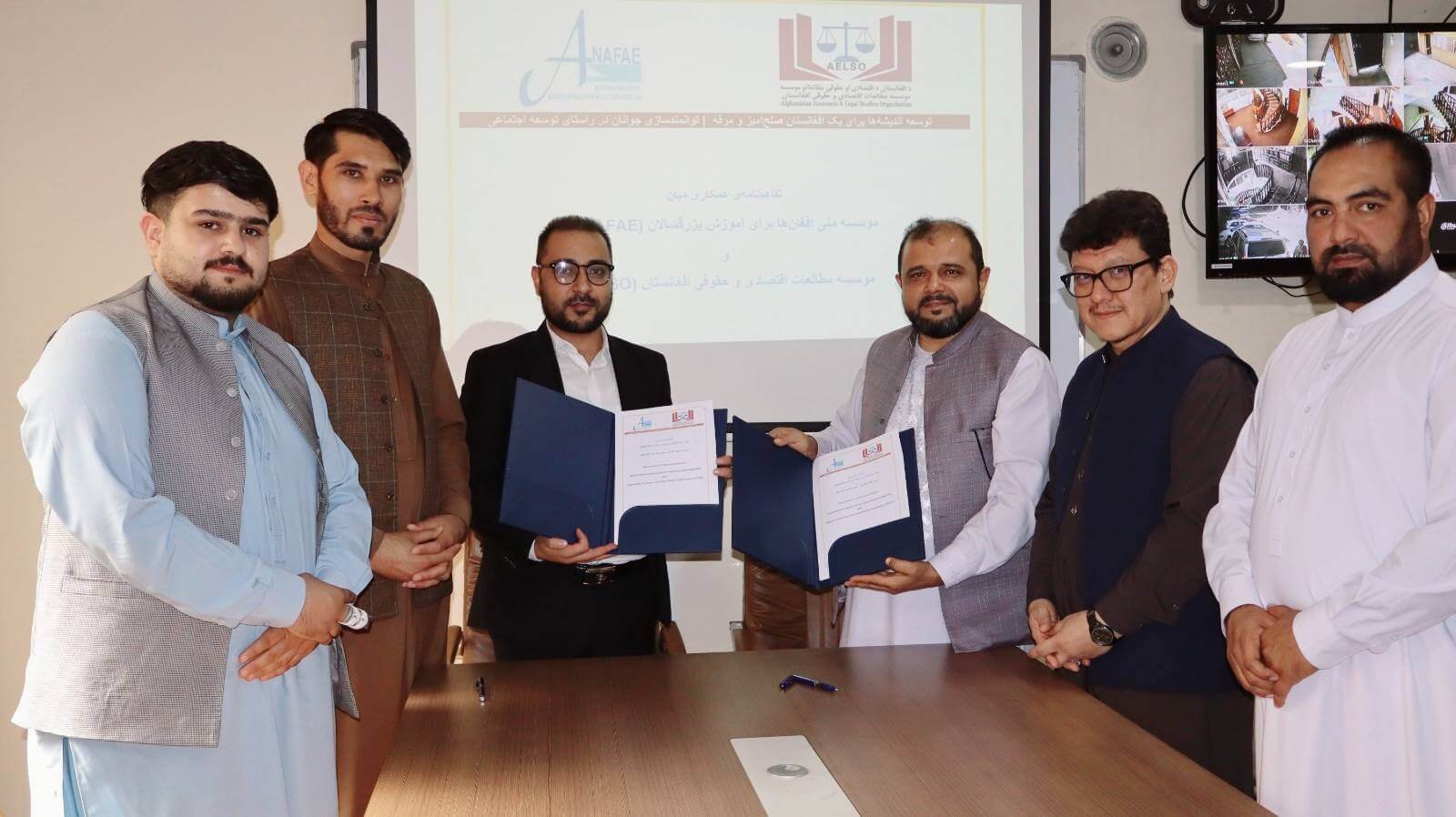
Memorandum of Understanding (MoU) between AELSO and ANAFAE
In line with expanding scientific, educational, and developmental cooperation, the Afghanistan Economic and Legal Studies Organization (AELSO) and the Afghan National Association for Adult Education (ANAFAE) have signed a joint Memorandum of Understanding (MoU). This agreement was concluded in the presence of the leadership of both organizations and aims to establish sustainable collaboration in the fields of education, entrepreneurship, and private sector support.
The primary objective of this MoU is to develop scientific and technical cooperation between the two organizations to support the process of entrepreneurial and vocational skill training, promote entrepreneurship, and economically empower Afghan citizens—particularly youth and women.
Areas of Cooperation
According to the provisions of this MoU, the cooperation between the two parties includes the following areas:
- Launching specialized and practical training programs in the fields of market economy, entrepreneurship, and business skills;
- Establishing joint centers for entrepreneurship training, especially in provinces and underprivileged areas;
- Organizing seminars, conferences, workshops, entrepreneurship camps, and expert forums to promote innovative economic ideas;
- Supporting startups and small & medium-sized enterprises (SMEs) and providing advisory services;
- Exchanging academic experiences and educational resources between the two institutions;
- Collaborating on research projects in areas such as poverty alleviation, economic development, entrepreneurship, labor market, and the role of women in the economy.
Expected Outcomes
Among the expected outcomes of this cooperation are:
- Enhancing the educational and vocational capacities of hundreds of Afghan youth and women in trade and entrepreneurship;
- Strengthening the infrastructure for informal and skills-based education across the country;
- Promoting a culture of innovation, self-employment, and sustainable production;
- Reducing dependence on foreign aid through the empowerment of domestic human resources;
- Creating employment opportunities and fostering economic growth at both family and community levels.
This MoU is not merely an institutional agreement—it symbolizes hope, unity, and a collective will to build a better future through education, innovation, and entrepreneurship. At a time when Afghanistan is facing unemployment and poverty, such collaborations can spark economic and social transformation. It is expected that with the implementation of the planned programs in this MoU, effective steps will be taken toward the empowerment of various segments of society, especially youth and women.